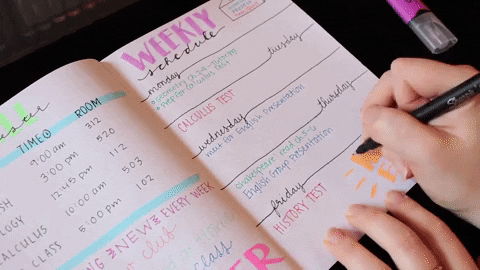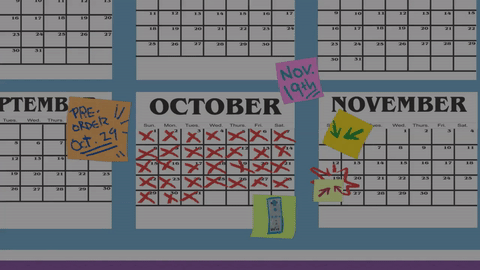Making through the first two months of a new semester without breaking down might be considered an accomplishment for college students. If the homework assignments are not as difficult as you originally believed, there should be nothing to worry about. The one major thing that is still considered a pain among college students is exams. The one- or two-page quizzes or long midterms, upon discovering the exact date and time, will send any student into an emotional frenzy. These techniques will help students to overcome the challenges they will face during these terrifying days.
1. Go for a short walk an hour or two before you have a test

Exercise is a great way to distract the mind from stress and improve your memory. It helps if you are walking to get lunch or you are going to the library or another class with someone. Having a conversation with friends about their major and the exam you have that day is beneficial. Talking not only only keeps you focused, but you might learn something from your friends, and they could possibly have advice for you when it comes to preparing for exams.
2. Take frequent 10-minute breaks

When studying for an important test, it is crucial that you take a break after every 45 minutes to an hour of reading or writing something. Even if you are in a study group, leaving to get food, use the bathroom, or just standing up to stretch is good for your mind and body. Make sure the meals you eat are healthy to increase memory retention. Doing a quick 10-minute workout is another method to strengthen your mind.
3. Put on some calming music or perform other small tasks

While studying alone for a midterm or test, putting on soft music while you are reading will help you to stay calm during your study session. When taking a break, doing other activities like cleaning your dorm room, doing yoga, or meditation are other ways to keep your mind focused. Switching up your methods or moving to a place where you can study without any distractions is a priority to achieving success.
4. Watch a Netflix documentary related to the subject

Although television is a distraction from your studies, it might be useful to search on Netflix for an interesting documentary about the exam topic. This is especially great if you are majoring in business, health science, criminal justice, or history. You will hear about all the information related to your test within a few hours. Unlike a lecture, you can pause and leave to get a snack or go to the bathroom without missing anything. As a bonus, if you have to write an essay, you can mention the documentary and reference some facts and other useful information you learned.
5. Make flashcards

One of the best ways to help retain information fast is creating flashcards. Either buy the cards yourself or use a study app. Fill the cards with key terms, facts, essay topic ideas, famous quotes, math problems, or science formulas as something to review (or practice with friends) while studying for an exam.
6. Try making a mind map

If you are having difficulty organizing and summarizing ideas that you have for a topic you are studying, creating a mind map is a unique strategy. Mind maps can be created on paper or by using a computer. This is a simple way to understand material that will be on an exam. Include visuals, words, and ideas, which may help you to remember information.
7. Create a study schedule

During the weeks that students are having midterms, it is challenging trying to balance school and social life. One solution is to make a schedule dedicated to studying for your exams. Mark down on a calendar (or your phone) the times that you have free to study. Putting at least two hours of work a day to prepare for exams will increase your chances of success.
8. Find a secluded place for studying

Another great way to make sure you are retaining the information you are studying is finding a quiet and comfortable area for reading and writing. By relocating yourself to a location you feel relaxed in, the chances of doing better on exams will increase. Make sure that the place is clear of any distractions like televisions, electronic devices (unless you need to use a computer), and loud noises. Some of the best spots can be your dorm room or a reserved spot in the library.
9. Do practice exams

If you want to get in some extra practice for an exam, trying looking on websites or use apps that have quizzes related to your test. Find questions with multiple choice, true or false, short answer, or math problems. Checking your textbook for examples is another good option. This will prepare you for any possible questions that you might see on your exam.
10. Review exam material before going to sleep

When studying for an important exam, try to get some reading done around one or two hours before going to sleep each night. Reading over material or doing some practice questions before going to bed will help you retain information. This is a method known as sleep-learning, and it is effective for college students. While your body is recovering, the brain is processing information during sleep, which means that everything you learned will be stored in your long-term memory.



















